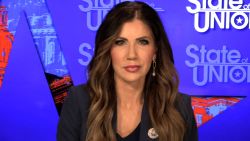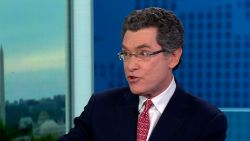Laid-off workers will be allowed to turn down jobs they think are too risky because of Covid and continue to collect unemployment benefits, under guidance issued by the US Department of Labor Thursday.
Biden's First 100 Days
The new rules, which stem from a directive signed by President Joe Biden last month, expand the conditions under which workers may be eligible for Pandemic Unemployment Assistance benefits. Congress created the program last March to provide payments to certain people affected by the coronavirus, as well as freelancers, independent contractors, gig workers and others who don’t typically qualify.
“Today’s guidance opens the door to relief for workers who have faced difficult, if not impossible, choices between accepting employment in an unsafe workplace to receive a steady source of income, and protecting their health and that of their loved ones,” said Patricia Smith, senior adviser to the Labor secretary.
The Pandemic Unemployment Assistance program is already available to those who can’t work because they have a health condition that puts them at risk or because their children’s schools have closed, among other reasons. But prior guidance issued under the Trump administration left some leeway for states to stop providing benefits to those who refused work because of coronavirus safety concerns.
Covering workers and parents
The new rules allow claimants to remain eligible by self-attesting that the job offered does not meet Covid-related safety standards, such as mask wearing, physical distancing or provision of personal protective equipment.
The guidance also expands eligibility for Pandemic Unemployment Assistance to workers who were laid off or who have had their work hours reduced as a direct result of the pandemic and to school employees working without a contract or assurance of continued employment who face pay reductions or layoff when schools are closed because of the outbreak.
And it allows those who quit their jobs to take care of their children to continue qualifying for benefits after schools reopen.
The agency, which does not know how many people may be affected by the action, said it expects states won’t be able to implement the new rules until the end of March, at the earliest. Benefits will be paid retroactively.
Addressing benefits fraud
Addressing concerns about unemployment benefits fraud that’s sweeping the nation and costing tens of billions of dollars, the agency said it will work more closely with the states and provide more funding to fight the scams.
“We have thus far taken a state by state approach and that is not enough,” said Suzi Levine, a principal deputy assistant secretary, who had to deal with the explosion of fraud over the past year as head of Washington state’s unemployment agency. “We need a national approach to help work in partnership with the states.”
States have been required to implement identity verification procedures as part of the December relief bill passed by Congress, she said.
But the “sophisticated criminal attack on our unemployment system” should not prevent those who legitimately qualify from getting benefits, Levine said.
“It would be a mistake to ignore those most in need due to the actions of criminals, who have already complicated and slowed benefits access for too many people struggling with job loss,” she said.


















